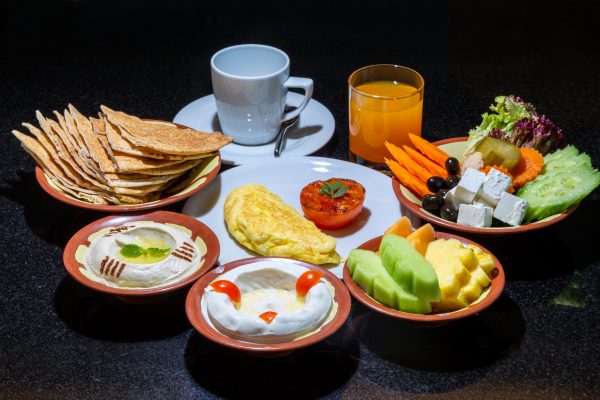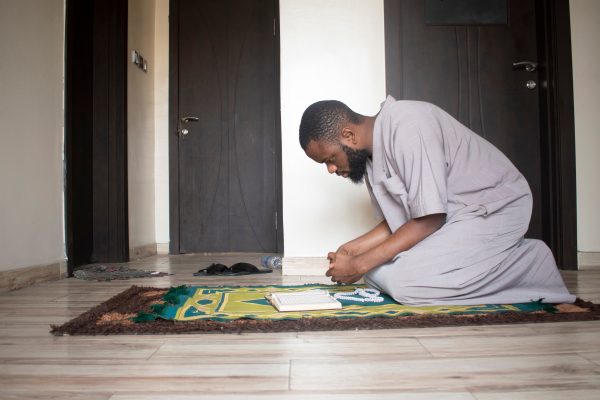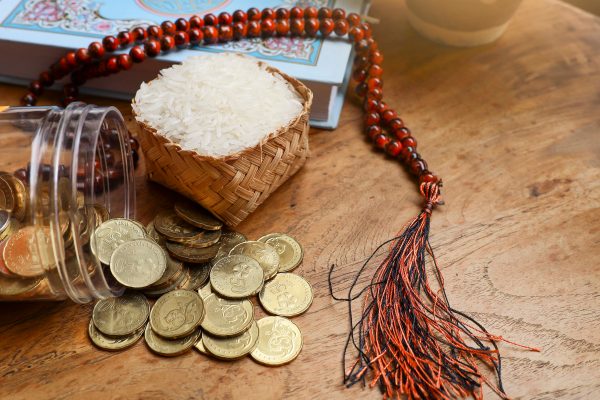Ramadan is a time of worship to Allah (SWT) and remembrance of others less fortunate than ourselves. And no matter where we are, we can always reflect and reach out to people in need.
Ramadan is a time of worship to Allah (SWT) and remembrance of others less fortunate than ourselves. And no matter where we are, we can always reflect and reach out to people in need.
Alhamdulillah, the month of Ramadan is full of blessings from Allah (SWT).
However, with many of us working or busy managing family life and with many lockdown restrictions still in place, it’s easy to feel overwhelmed and unsure of how to make the most of this blessed month.
Well, fear not! Here are five top tips to maximise the blessings of Ramadan and worship Allah (SWT). Take a look!
1. Pre-plan healthy meals

Healthy food planning is critical in keeping up our energy levels and saving time for prayer and other activities.
Whilst your tummy is empty, it’s easy for your eyes to become bigger than your stomach. However, you’ll be surprised at just how little you need to eat when you break your fast.
Save yourself time and energy – and avoid wasting food too – and pre-prepare small, hearty, healthy meals.
Come suhur time, you definitely don’t want to be scrambling around trying to find something to eat. Likewise the few hours before maghrib is not only the most sacred period of the day but also the time when you’re feeling the most tired.
Save yourself the worry and the risk of meagre, poor quality meals, and plan ahead. Pre-plan when you’re going to do the food shopping, make and freeze bulk meals which can be reheated in a few minutes, and ensure you’ve got lots of fresh, quick, and easy fruit and veg to prepare soups, salads, and light but filling healthy meals.
Above all, avoid fried foods. Samosas, pakora, chips, bourek – whatever it may be – they may seem tasty (especially on an empty stomach) but fried foods will leave you feeling bloated and full. Not only is bloating painful but it also means that as you’ll feel fuller much easier, you’ll not be able to drink enough water or eat enough of the right foods.
You’ll therefore not get sufficient amounts of much-needed vitamin and mineral-packed foods to last you for the day ahead. Instead, pick light, healthy raw, boiled, grilled, and baked foods over oily, heavy, and fried items.
Not only are they healthier but your fasting stomach will thank you for it during the long hours ahead!
If you’re in need of healthy Ramadan dishes, check out these three Palestinian appetisers.
Why not also sign up to our Meat Free Challenge? By going veggie for the last two weeks of Ramadan, you can eat healthier lighter meals, help the environment, and support people in need in the process.
2. Remember why you’re fasting

Ramadan is a blessed time of spiritual renewal, reflection, and bonding with not only Allah (SWT) but also our family, friends, and wider community.
However, when you’re tired, hungry, and hot, it’s easy to get frustrated at friends, family, and colleagues. That’s why, when we fast we also be mindful of our behaviour. We must hold our tongue, lower our gaze and ensure that our behaviour is “in check”.
So, when something is testing your patience, stop, breathe, pause and stay calm. Remember why you’re fasting and keep up those good deeds. You may be hungry, but try at all costs to not get hangry. After all, the reward is with Allah (SWT). It’s also not easy – but that’s where the reward lies!
So whenever you’re feeling tired, hungry, thirsty or even low, remember your love of Allah (SWT). SubhanAllah!
For a host of soulful resources to keep you grounded, check out our Virtual Mosque which offers daily Qur’anic recitations, history nights, and Friday Jummah khutbahs.
3. Focus on self-care

Self-care is incredibly important, not just for our physical health but also our mental wellbeing. Looking after your physical and mental health is a religious duty, so do take good care of yourself.
During lockdown in particular, it’s crucial that we establish good self-care practices. This not only ensures that we’re happy and healthy, but helps keep us motivated and productive. We need to ensure that we engage in activities that help us feel relaxed, as stress-free as possible, and centred within ourselves. After all, Allah (SWT) commands us to look after our health.
Firstly, it goes without saying: only fast if you’re healthy and it’s safe to do so.
What’s more, if you are fasting but have a health condition, make sure that you schedule how and when you can take any medication you may require. Whether you switch your schedule to during suhur or after maghrib, the important thing is not to forget and to get into a new habit. Remember, our health comes first.
Secondly, if you’re self-isolating alone and missing friends, family, and loved ones: schedule regular Skype calls or phone calls. Or even better: why not break fast together with a virtual iftar? It’s Sunnah to maintain good relations with loved ones, so reach out for a friendly chat, communal virtual fast or just to let off some pre-hangry tension.
We should all remain active and engaged during Ramadan, so sleeping all day is a big no no! However, a small nap after lunch before the pre-Iftar period will help you refresh and stop that afternoon/early evening slump. This will then help you raise your energy levels for when you want to prepare your iftar and spend some time praying and making dhikr before maghrib.
It’s critically important to make time for yourself and activities that you enjoy. Pray to Allah (SWT), take that relaxing bath, have a kick-about in the garden, or go for a long walk (ensuring that you maintain your distance from other people outside your household) to ensure that you stay healthy in mind as well as body!
If you’re burnt out, you won’t be able to focus on fasting or prayer – so remember the importance of self-care.
4. Make a worship schedule

With work, family commitments, meal preparation and many more things that you need to squeeze into the day, you may find it harder to put your good intentions into practice.
However, by making an ibadah (worship) schedule, you can make realistic goals and make the most of your time. You can plan how much of the Qur’an you’ll read a day, when you’ll have a quiet period to make dhikr, and a plan of good deeds to fit in much-needed sadaqah (good deeds/charity).
With a clear idea of when and what you’ll be doing, you can ensure that you can fit your goals into this jam-packed month and stick to them insha’Allah.
Remember, small but consistent good deeds are the most precious of all!
To help you with your ibadah, be sure to visit and bookmark/print out these resources:
Don’t forget that paying your Zakat is a form of ibadah, with maximum blessings during the month of Ramadan.
5. Engage in charity

Talking of Zakat…Ramadan is a time of worship to Allah (SWT) and remembrance of others less fortunate than ourselves. And no matter where we are, we can always reflect and reach out to people in need.
This is especially important during the Covid-19 pandemic. All across the globe, including here in the UK, vulnerable people are struggling with their health, financial worries, and loneliness.
But the good news is that, even from the safety of our homes and limited options to go outside, we can still help. Helping elderly neighbours with their shopping, donating your Zakat online and volunteering are just a handful of ways you can help others and make the most of Ramadan.
Individuals and families in crisis need our help now more than ever. Let’s not forget them this Ramadan.
So, with these five top tips, you should be able to make the most of these precious, sacred weeks.
From everyone at Islamic Relief, we’d like to wish you and your family a productive, happy, and healthy Ramadan.
Ramadan Mubarak!





